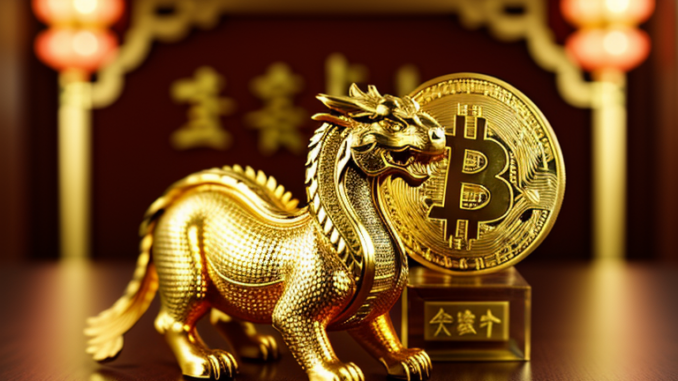
China’s government has officially recognized virtual assets as legal property, marking a significant shift in the nation’s stance on cryptocurrencies. The announcement, made by China’s People’s Court, is a pivotal moment in the ongoing debate surrounding the legitimacy and potential of digital assets within the country.
China’s acceptance of virtual assets as legal property is a major milestone in the nation’s cryptocurrency landscape, demonstrating a growing understanding of their economic importance, despite China’s history of strict regulations on cryptocurrencies.
The path towards recognizing virtual assets as legal property has been gradual for China. In 2018, a Chinese court acknowledged Bitcoin as “virtual property,” even though it was considered illegal at the time. This ruling provided hope for individuals holding virtual assets, showing the government’s willingness to recognize their value.
It is important to note that the recent court ruling does not directly challenge the existing ban on crypto trading and mining in China. The government cracked down on Bitcoin mining operations in 2019 and implemented a comprehensive ban on cryptocurrency trading and mining in 2021. As a result, the future regulatory environment for cryptocurrencies in China remains uncertain.
However, the recognition of virtual assets as legitimate property opens the door for more nuanced regulatory discussions in the future. The court ruling acknowledges the economic attributes of virtual assets that categorize them as property, indicating a potential shift in the government’s perspective on cryptocurrencies.
China’s crackdown on cryptocurrencies began in 2013 when banks were prohibited from engaging in Bitcoin transactions. Since then, the government has implemented various measures to control and regulate the crypto industry. The 2017 crackdown on initial coin offerings (ICOs) was a significant move to curb the unregulated fundraising method. These actions reflect China’s struggle to navigate the global evolution of digital currencies.
The People’s Court report further supports the recognition of virtual assets as property, emphasizing their economic value. It underscores the need for a comprehensive understanding of the legal and economic implications of virtual assets, potentially paving the way for future changes in government policy.
However, it is crucial to note that the recent ruling does not guarantee an immediate shift in government regulations. The ban on crypto trading and mining remains in place, and the future of cryptocurrencies in China remains uncertain. Nevertheless, the ruling provides hope to individuals holding virtual assets, as it acknowledges their legitimacy.
Despite this legal recognition, China’s cryptocurrency industry still faces challenges. The comprehensive ban on trading and mining has had a significant impact on the industry’s growth and development. However, the recognition of virtual assets as legal property represents a step forward, indicating that China is gradually adapting to the changing landscape of digital currencies.
China’s acknowledgment of virtual assets as legal property holds not only local but also global significance for the cryptocurrency market. As one of the world’s largest economies, China’s evolving stance on cryptocurrencies has the potential to shape the future of digital assets. The ripple effects of the Chinese government’s changing perspective may influence how other countries perceive and regulate virtual assets.
In conclusion, China’s recognition of virtual assets as legal property represents a monumental milestone in the country’s cryptocurrency landscape. Despite the existing ban on crypto trading and mining, the court ruling acknowledges the economic attributes of virtual assets, laying the groundwork for more nuanced regulatory discussions in the future. While the regulatory environment for cryptocurrencies in China remains uncertain, this decision instills hope for individuals holding virtual assets and underscores China’s evolving stance on digital currencies.

Be the first to comment